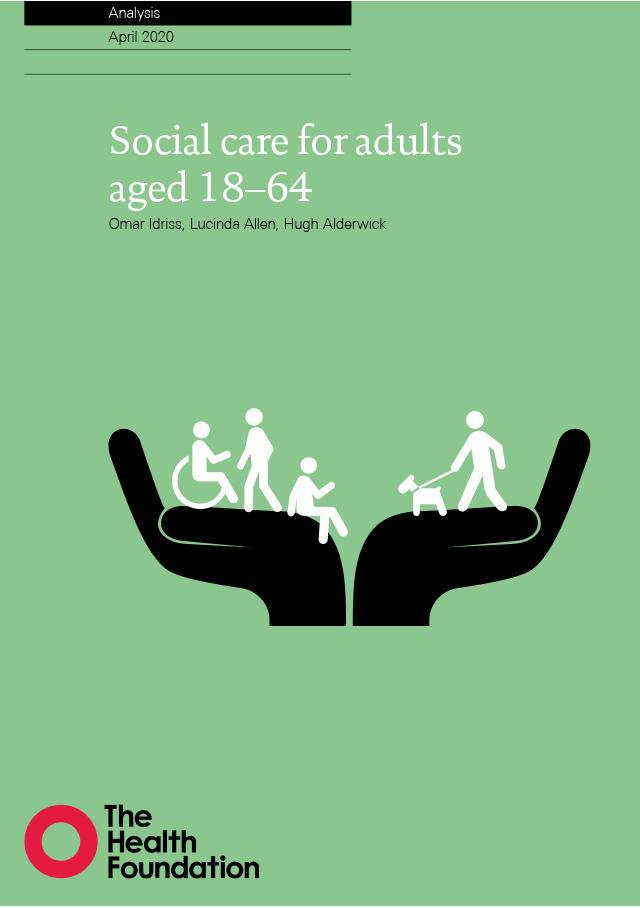Social care for adults aged 18–64 In England
April 2020

Key points
-
Younger adults (aged 18–64) are a large and growing part of the adult social care system. They make up around a third of care users accessing long-term support in England and over half of local authority spending on social care.
-
Many younger adults are likely to be going without the care they need. Estimated care needs have been growing over the last decade, but the number of people accessing public support has fallen.
-
When younger adults do access social care, quality and outcomes vary. The majority of younger adults are happy with the social care they receive. But quality care of care is unacceptably poor in some cases, and national targets on supporting people with a learning disability or autism to live in the community have been repeatedly missed.
-
Unpaid carers of younger adults experience worse outcomes in some areas than carers of older people. They are less likely to be satisfied with social care services and are more likely to have developed health conditions and experienced financial difficulties because of their caring role.
-
Workforce problems are chronic across the social care system. More nurses will be needed in future to care for the growing number of younger adults with learning disabilities. Yet learning disability nursing courses are struggling to attract students, have particularly high drop-out rates, and are becoming financially unsustainable.
-
The publication analyses publicly available data to understand the social care needs of younger adults in England, how they differ from those of older people, and how these needs are changing.
Background
People aged 18–64 with learning disabilities, mental health problems, and other social needs are a core part of the social care system. They make up around a third of care users accessing long-term support in England and over half of local authority spending on social care.
Focusing on social care for younger adults in England, this analysis explores:
-
System context: What does the social care system for younger adults look like?
-
Care needs: What care needs do younger adults have and how are these changing?
-
System performance: How well does the social care system care for younger adults and their carers?
-
Outcomes: What outcomes do younger adults in the social care system and their unpaid carers have?
Policies to improve and reform adult social care will not be successful unless they understand and address the needs of younger adults, who must not be forgotten in the policy debate about social care.
Find out more
To hear more about the Health Foundation's work, go to our preference centre where you can sign up to receive email updates on topics including social care and policy.
Cite this publication
Further reading
Work with us
We look for talented and passionate individuals as everyone at the Health Foundation has an important role to play.
View current vacanciesThe Q community
Q is an initiative connecting people with improvement expertise across the UK.
Find out more


